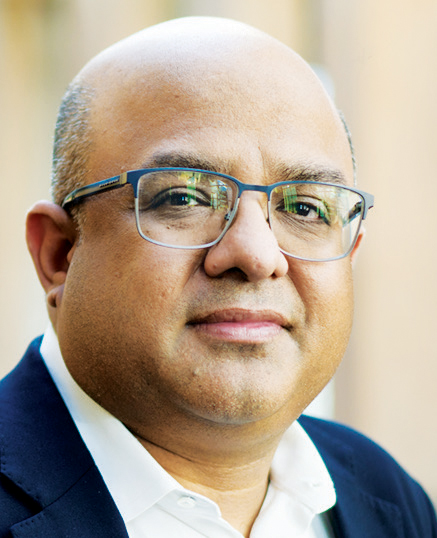Better together; never alone
 |
| Dr Ahmer A. Karimuddin |
Doctors of BC has committed to better together as the central pillar of our new strategic plan. Moving forward, taking each other along in all the work we do is a wonderful thing. Anything I can do, you and I can do better, together. Anything I achieve, you and I can achieve better, together. In partnership and connection, we make the complex problems in our world better, together.
A lie we tell ourselves starts on the first day of medical school. We don a white coat to help us stand apart, feel empowered, and be enabled. We share with the world that we are ready to help and promise to look after it. What it tells us, in hushed whispers, is there will be a time when we will need no one.
It happens repeatedly. You have your MD; you are ready to be on your own. You have your CFPC; you know all you need to know. You have your privileges. You’re an island unto yourself. The system around us keeps lying to us, and so do we.
Why do we do that?
In locker rooms and Facebook groups, we talk of feeling alone—47% of residents are bullied, 60% of female physicians feel unsafe at work, 80% of those victimized feel unsafe reporting such behavior, 40% of doctors report feeling burned out, 30% meet the criteria for depression, and 1 out of 14 report suicidal ideation, with the highest ratios seen in doctors who have been in practice for more than 10 years. More time spent in medicine doesn’t teach us how to cope; it simply makes us more alone.
Yet, in the real world, people cheer when they hear someone has gotten into medical school. Why? Because they know their loved one will have a meaningful life of purpose. Mitch Albom tells a beautiful story about his sociology professor, Morrie Schwartz, who had ALS. People would come to commiserate with Schwartz yet would leave feeling uplifted. Albom asked Schwartz why he was not wallowing in misery when he was the one who was dying. Schwartz explained simply—why would he do that when taking made him feel like he was dying, but giving made him feel like he was living? Giving and sharing make us feel alive. We are better, together.
In our challenging workspaces, it is hard to find inspiration sometimes. We are reminded daily that no one of us can change the entire health care system. Yet I find inspiration at work daily. I find it in the people who come together to look after a patient with colorectal cancer. I find it in the operating room, where surgeons, anesthesiologists, and nurses come together to make miracles happen. I find it with our surgical residents, who see the world as one of possibility, not a broken one as so many of us do. Only by being with them am I better.
Alone, it’s hard to change one order set. When we came together through the Specialist Services Committee to create the Enhanced Recovery After Surgery and Surgical Patient Optimization Collaborative, we changed entire care pathways, patient journeys, and provider experiences. Overnight, lengths of stay went down by 4 days, and complications by a third. Together, we made everything better.
So, how will Doctors of BC commit to change? By making a commitment to each other that we will get through these difficult times better, together. A commitment that we will help our colleagues so we can do better, together. A commitment that we will help our patients find their way through a challenging health care system better, together.
This commitment will follow a promise as well. You will never be alone. If you are struggling to make a clinical decision, there is a friend next to you—you are never alone. If the demands of your job or your personal life are too much, there will be someone there for you—you are never alone. If you are being intimidated or bullied, there will be someone there for you—you are never alone. This is the change that we can make today, and Doctors of BC commits to this: we are, and we will be, better, together. When you need someone, you will not be alone. Better together; never alone.
—Ahmer A. Karimuddin, MD, FRCSC
Doctors of BC President
hidden
 |
| This work is licensed under a Creative Commons Attribution-NonCommercial-NoDerivatives 4.0 International License. |

